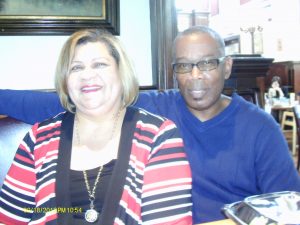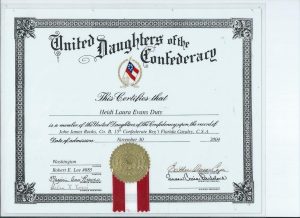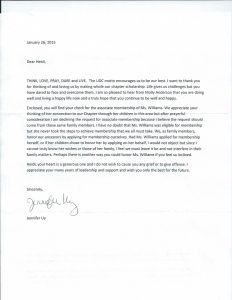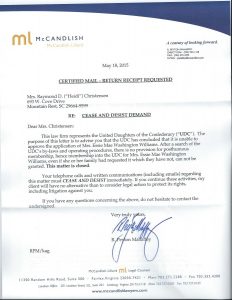Somebody’s Daughter by Tenille Townes
Somebody’s Daughter by Heidi Christensen
“Between me and the other world, there is ever an unasked question…how does it feel to be a problem?”
– Dr. W.E.B. DuBois, The Souls of Black Folk
What does the world know about Mrs. Carrie Butler? Few facts are known of her brief life, which started in Edgefield, South Carolina and ended 30 some years later in Pennsylvania when she died of cancer.
She is best known for surviving statutory rape as a domestic child worker in the Thurmond residence and birthing the eldest child of Senator Strom Thurmond, Essie Mae Washington Williams:
https://www.orlandosentinel.com/news/os-xpm-2003-12-21-0312210195-story.html
There is more from her life we must know. What was her favorite color? What was her favorite flower? How can her life unite us above our differences? Can we become a culture where people thrive because of motherhood, rather than despite motherhood? Can we finally stop treating children as a source of anxiety, and value them as the building block of our future? When will we afford motherhood the appropriate level of dignity?
These are questions that have been on my mind since I was a child raised in the American Southland. If we wonder why intercultural communications in the Americas are dominated by the Black/White binary, then we will have to reckon with how the non-binary of our complex stories can heal this divide.
It is said that all is fair in love and war, which means everything is fair in its own time. Like many so-called white women of Generation X, I was a latchkey kid whose steady Father Figure was Bill Cosby in his Fat Albert show playing from our Sony TV with its tin-foil covered rabbit ears. We wheeled that portable television set from town to town in the Deep South as we moved around constantly, carrying with it the hope that Bill Cosby would still be there when we plugged this 1970s robot into the wall. We didn’t know when Mom would get home from work, and we didn’t always know where Dad lived, but we knew Bill Cosby would cast his smile on us from that little portable robot.
In the 1980s, we welcomed him and the Huxtable Family into our home when we had time between chores and homework to catch a glimpse of this wonderful patriarch, Bill Cosby. We snuck articles from Jet and Ebony magazines at the local free clinic to read more about his life as a Navy Veteran, and a young man growing up in Philadelphia. We were proud of his fortune, and secretly preferred to be his wife’s maid one day rather than go work inside a skyscraper.
We were beaten and scolded for even talking to a so-called Black man, because he was only on Earth to harm us, or so we were told by authoritarian elders who hated him not for being a dominant figure from the African Diaspora, but for having much more material wealth than us.
Such is the story of so many so-called white women from Generation X, whose identity crisis was well documented long before Rachel Dolezal became a household word.
Bill Cosby made us feel like somebody’s daughter.
What will we do for Mrs. Carrie Butler? She and her daughter, Essie Mae, have passed into eternity, but when will we value all young girls as somebody’s daughter? When will we honor her life in sacrament, not in ceremony?
When will we realize that we won the American Civil War, when viewed from the eyes of African Americans from the Southland? We will have no peace until we surrender our fear and strive to be made perfect in love, serving Black leaders and all our neighbors with a humble heart.

Pictured with her husband of over 40 years, Marine Corporal Gerald J. Hudgens in Columbia, South Carolina
When I connected with Monica & Gerald in 2015 after I left the United Daughters of the Confederacy (UDC), she expressed her desire not to be associated with the group. She tells her own story as a sought-after public figure:
While her mother wanted to join the group, Monica was only allowed to join the UDC Seattle as an Associate Member when I was Registrar, then later President of this small Chapter with No Division, as it is recognized by the UDC Richmond. Monica later quit the UDC Seattle and has no desire to rekindle her affiliation with this genealogy society.
During my tenure with the Seattle UDC, I advanced Essie Mae’s application, only to be ignored, shut down, then sent a cease-and-desist notice from the UDC’s Attorney. While the UDC has always had a small number of Black members, they met Essie Mae’s application with cruel silence and vicious rejection. Essie Mae did attempt to advance her application during her lifetime, only to be stonewalled for “lack of acceptable genealogical proofs”.
Given that there were no birth/death/marriage records kept for African Americans until well into the 1980s in many Deep South states, it is cruel that the UDC refused to grant Essie Mae membership based on her brother Paul Thurmond’s own admission that she is his sister.
The United Daughters of the Confederacy was founded near Nashville in 1894, at a time when there was no Veteran’s Administration at all. Its objectives are historical, educational, benevolent, memorial, and patriotic. In 1894, its members provided material relief to both Union and Confederate Veterans and their families. This is the good they have done.
While the American Civil War has long been raised to the level of idolatry in popular culture, the reality is that every war leaves a landscape littered with destruction, renewed only by the creative hands of unpaid Caregivers.
The UDC between 1894-1920 provided a lot of care and relief to Veterans of the American Civil War, with an emphasis on those from the conquered Confederate States of America.
Yet since 1920, the UDC focused heavily on the educational and memorial portion of its objectives. Through the efforts of wealthy women who had recovered fortunes built by Americans held in slavery and Jim Crow, the UDC influenced public school curricula, monuments, textbooks, and history books regarding the benevolence of the international slave trade.
As the great-great granddaughter of Pvt. John James Rooks, Company B, 15th Cavalry, “Marianna Dragoons” in Chipley, Florida, I do not wish to condemn anyone. That is not my place. My elder Poppy, born 25 August 1838 in New Hanover County, North Carolina, sojourned to Chipley, Florida as a teenager and worked as a sharecropper.
When the American Civil War broke out in 1861, he served as a Wagoneer until this conflict officially ended in 1865. The Military rank equivalent in modern terms for a Wagoneer would now be a tank operator. Imagine he had nothing to shield him except his wits, driving a wagon and manning horses during this terrible conflict.
He died in 1894, the same year the United Daughters of the Confederacy was founded. He left his wife, Adaline Potter Rooks, and their many children to carry on in Chipley, the county seat of Washington County, Florida.
That anyone would ask me to condemn him is unreasonable and is one thing that balkanizes us as descendants of Ulster Scots, better known as poor white trash. We Appalachian Americans are the butt of every joke until someone needs us to fight their foreign wars or provide cheap labor. We are the salt of the Earth, good people with preference for simplicity and theocracy over a Yankee nation that has gone hog wild in its preference for material objects over spiritual beings. Have at it, we say. We prefer life on the outskirts.
Likewise, that anyone would shoplift my heritage is an angry thing. The idolatry of this centuries old conflict is one reason the American Southland is still the most violent region in our country. The pleasantness of our culture is one reason the American Southland remains the most lyrical, beautiful, and treasured part of the world for many people.
One of them was my great grandfather, Enoch Marvin Rooks, who married the infamous Dixie Beatrice Williams Rooks. It is through the Williams family that I bear the absolute responsibility of much direct involvement in the Middle Passage.
Grand Dixie, as she was called, was widowed at a young age from this handsome Methodist Pastor Enoch Marvin Rooks. Together, they built the First United Methodist Church in Moundsville, Alabama. They served all over North Florida, especially its rural Panhandle. They had five children, one of whom was my Poppy, Reverend Dr. John James Rooks, Sr. Poppy and our Grammy, Ethel Roosevelt Liles Rooks, raised all Mother’s children as she struggled with deafness.
Though Grand Dixie was named after the Confederacy, she never cherished any love for any trappings of war, modernism, or materialism. I never saw a rebel flag on her little tin roofed home in Gainesville, Florida right behind the Gator Wesley Center near the University of Florida campus.
When Poppy Enoch died, she had never learned to drive, nor did she ever want anything to do with smelly, stinky, noisy cars. She thought of cars what many elders now think of smartphones. She was my greatest influence in this way, as I walked, took the bus, or rode my bicycle until I graduated Florida Southern College.
Grand Dixie was never offered a ride to First United Methodist Church in the more affluent area of Gainesville, so she walked to what was then University United Methodist Church, now the Gator Wesley Center.
She would get into the car with absolutely anyone she deemed worthy to host her. She attended Mount Olive AME at the invitation of her many friends there, who always gave her a ride when they saw her waiting on the bus.
She was considered radical for walking everywhere without stockings or lipstick on dressed in her hand sewn muslin dresses. She was considered radical for riding along with her neighbors that she never called strangers. The only radical thing about Grand Dixie was her feminine genius, her love, her hospitality, and the legacy she left us. She was the very definition of radical hospitality as known by the Florida United Methodist Conference.
When Bishop Bob Fannin presided over her funeral, there was standing room only. Students who didn’t even know her name came to pay her respect, for she insisted they walk up to her porch and sit down for a plate and a cool glass of sun tea. She talked to them, and listened to their concerns, often giving them a pop valve for their stress as students and workers.
That the Methodist Church was the largest participant in the Middle Passage of any religious entity in the Americas may have been because of its roots from the Church of England, or its lack of recognition of the feminine values exemplified in my Grand Dixie’s life.
It is hard to know what John Wesley saw when he sailed to Brunswick County, Georgia in 1735. A diminutive man, he was tall in spirit and gentle in nature. He urged the colonists not to rebel against King George. He had methods by which he performed his duties, and was called by the epithet, “Methodist”. True to Christ’s teachings, he considered himself blessed when he was cursed and adopted “Methodist” as an official name for the Church.
I wonder if he ever considered that to rebel against Mother England was to rebel against Mother Africa. He urged people not to wage a war of secession, as it would only lead to another bloody secession. In retrospect, he was correct. The war of 1776 only gave way to the war of 1861. It is well understood that people wage war for many reasons, but it is better understood that we can no longer sustain bloodshed as the means of conflict resolution. We are neither dependent nor independent, so much as interdependent. This is one of the feminine values Grand Dixie taught me by seceding from her legal right to drive a car. She voted, and spoke her mind, but she refused to participate in a world that went too fast. It is through her that I am somebody’s daughter, just like Carrie Butler was somebody’s daughter.
Globally, the United States of America is loved and reviled, but it is true that we are the world’s police force. We give more than any other nation to global security, while often getting nothing in return for those who sacrificed their lives.
As the Americas become more connected, so will our rule of law advance to reflect greater interdependence.
In conclusion, as Bill Cosby’s name has been removed from Temple University for being sentenced guilty for criminal sexual assault, it is philosophically inconsistent that Strom Thurmond’s name remains on South Carolina public buildings. It is not cancel culture to insist that we be consistent in our desire to remove painful memories from public spaces. It is not politically correct nor incorrect to insist that we value personal relationships more than personal opinions. It is not feminine aggression to insist that we place being polite over doing politics.
In fact, it is this feminine genius that makes us all somebody’s daughter, and somebody’s son.
###
Thank you for reading & sharing this document. Please see below the history of my exodus from the United Daughters of the Confederacy.
As of 2021, the United Daughters of the Confederacy receives no tax money from the Commonwealth of Virginia for the maintenance of its monuments. It had received money from the Virginia Department of Historical Resources for decades until people insisted it stop.
As of 1 July 2022, the Virginia Department of Historic Resources is pleased to announce the availability of grants for the care and maintenance of historical African American cemeteries and gravesites in Virginia. Learn more and apply here:
https://www.dhr.virginia.gov/grants/
https://www.dhr.virginia.gov/
Dedicated in loving memory to Mrs. Carrie Butler
Please help me learn and teach more about her life so South Carolina children have a legacy of pride and a future of hope.
We must secure the existence of all people and a future for all children, for the beauty of our shared green environment must not perish from the Earth.







HeidiDutyTime and HeidiDuty are service marks or registered service marks of Kent, LLC.
Copyrights © 2002-2024 HeidiDutyTime.com, Inc. All rights reserved.